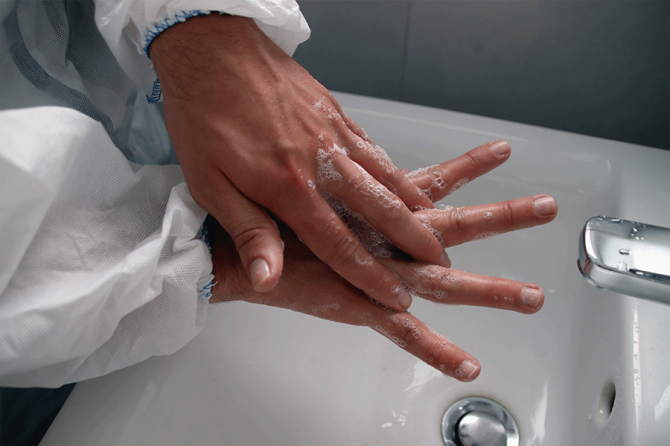
Obsessive-Compulsive Disorder (OCD)
Symptoms of Obsessive-Compulsive Disorder (OCD)
OCD manifests through a wide range of symptoms, often involving intrusive thoughts and the need to perform certain behaviors to alleviate anxiety. Common obsessions include fear of contamination, concerns about harming oneself or others, and an overwhelming need for symmetry and order. Compulsions, on the other hand, might involve repetitive actions like washing hands, checking locks, or counting objects to neutralize the distress caused by the obsessions.
Risk Factors for Obsessive-Compulsive Disorder (OCD)
While the exact cause of OCD remains unclear, several risk factors have been identified:
- Genetics: Family history of OCD can increase the likelihood of developing the disorder.
- Brain Structure and Function: Certain brain abnormalities or imbalances in neurotransmitters may contribute to OCD.
- Trauma: Childhood trauma or significant life stressors can trigger the onset of OCD in susceptible individuals.
- Personality Traits: Perfectionism, high levels of anxiety, and a propensity for excessive worry can increase vulnerability.
Causes of Obsessive-Compulsive Disorder (OCD)
The development of OCD is likely influenced by a combination of genetic, neurological, and environmental factors. Research suggests that an interplay between genetic predisposition and brain chemistry plays a crucial role. Abnormalities in the brain’s circuitry involving the basal ganglia and frontal cortex are thought to contribute to the disorder’s symptoms.
Diagnosis of Obsessive-Compulsive Disorder (OCD)
Diagnosing OCD involves a thorough assessment of an individual’s symptoms and their impact on daily functioning. A skilled mental health professional at German Neuroscience Center Dubai will conduct a comprehensive evaluation, which may include interviews, psychological questionnaires, and discussions about the history and duration of symptoms. This meticulous process ensures an accurate diagnosis and a personalized treatment plan.
Treatments for Obsessive-Compulsive Disorder (OCD)
At German Neuroscience Center Dubai, a multidisciplinary approach is employed to provide the most effective treatments for OCD:
- Cognitive-Behavioral Therapy (CBT): CBT, particularly Exposure and Response Prevention (ERP), is a gold-standard psychotherapy for OCD. It involves gradual exposure to feared situations or thoughts and learning healthier ways to manage anxiety without resorting to compulsions.
- Medication: Selective Serotonin Reuptake Inhibitors (SSRIs) are commonly prescribed to manage OCD symptoms. These medications help regulate neurotransmitter levels in the brain and can be especially beneficial when combined with therapy.
- Deep Transcranial Magnetic Stimulation (dTMS): This innovative non-invasive procedure utilizes magnetic fields to stimulate specific brain areas, helping to modulate neural circuits associated with OCD symptoms.
- Support Groups and Education: Engaging in support groups and receiving education about OCD can help individuals and their families better understand the disorder and cope effectively.
Why Choose German Neuroscience Center Dubai for OCD Treatment
German Neuroscience Center Dubai stands out as a leading institution for OCD treatment due to its commitment to providing patient-centered care:
- Expertise: The center boasts a team of experienced psychiatrists, psychologists, and therapists with a deep understanding of OCD and its complexities.
- Tailored Treatment Plans: Each patient receives a personalized treatment plan based on their unique needs and preferences, ensuring the highest chances of success.
- Cutting-Edge Therapies: The center offers a wide range of evidence-based treatments, including CBT, medication, and advanced therapies like dTMS.
- Holistic Approach: The team at German Neuroscience Center Dubai recognizes the importance of addressing both the psychological and emotional aspects of OCD, promoting overall well-being.
Conclusion
Obsessive-Compulsive Disorder can be a challenging condition to manage, but with the right support and treatment, individuals can regain control over their lives. German Neuroscience Center Dubai is dedicated to providing the highest quality care for individuals struggling with OCD. Through a combination of expert knowledge, personalized treatment plans, and advanced therapies, the center is committed to helping patients overcome the grip of OCD and embrace a healthier, more fulfilling life.

